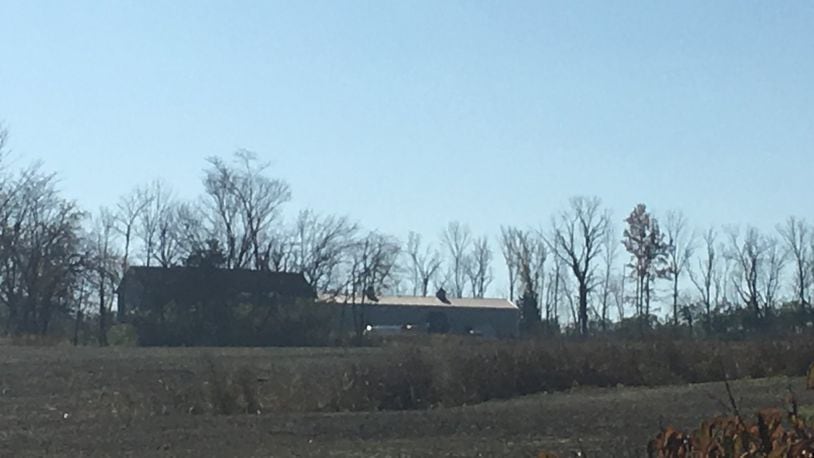The lawsuit appeals a decision by the Warren County Rural Zoning Board of Appeals that permits Septek to operate in the neighborhood along Beal Road, just east of the Ohio 123 and Interstate 75 interchange.
Earlier this month, Judge Donald Oda II disqualified and recused himself and the other judges on the common pleas bench in Warren County.
“Each of the judges of the Court has a conflict of interest which requires disqualification,” Oda said in an order filed Nov. 1.
This followed Magistrate Andrew Hasselbach’s decision to remove himself from taking part in the case.
Judges typically step out of legal action involving friends and past and current colleagues to avoid conflicts of interest.
Fedders retired in 2003 after 32 years as judge in common pleas court.
In June, Fedders, his wife, and his neighbors, including Roger Eckert, former law director in Springboro and assistant city manager in West Carrollton, and Fred Abrams, past president of the Montgomery County Historical Society, appealed a ruling by the county’s rural zoning commission. It permitted Septek to operate on their narrow, two-lane asphalt road in Franklin Twp.
The lawsuit claims the decision was “unconstitutional, illegal, arbitrary, capricious, unreasonable and unsupported by the preponderance of substantial reliable and probative evidence.”
Scott and Laura DeHart are permitted to operate their home business, despite concerns about pollution, noise and traffic expressed in filings and at an open hearing, provided they meet conditions set by the zoning appeals board.
The area, on the edge of the Springboro school district in Franklin and Clearcreek townships, is made up mostly of large-lot homes and farms, some operating home businesses, east of Interstate 75. The neighbors, also including Henderson Turf Farms, are served by septic sewage systems.
SepTek sought the permit after being found in violation of county regulations for operating the business without a permit. The DeHarts were granted permission to operate the home business as a conditional use through rules approved by county commissioners.
The commission limited the operation to five of 16 acres on the property, which the DeHarts are renting. It also barred the DeHarts from storing, treating or dumping “effluent, bio-solids and the like” there. The decision also limited vehicles used in the business and required SepTek to add trees and a berm to buffer the neighbors.
“No set of conditions can make the collection, hauling and disposal of disease-carrying septic materials — and the accompanying parking, repair, cleaning and maintenance of heavy trucks and equipment — acceptable in a residentially zoned, well-maintained neighborhood of single-family homes,” Eckert said in materials submitted at a four-hour hearing on March 29.
Last week, the DeHarts’ lawyer, Tom Eagle, said Septek was operating within the conditions set by the county.
Contrary to the neighbors’ claims, Eagle said the area was so rural and the business and neighboring homes so isolated that it should limit the potential problems claimed by the neighbors.
“You can’t see any of those homes from where Septek wants to operate. You can’t see Septek from any of those homes,” Eagle said. “That’s how rural it is.”
Despite decades of interactions in the local courts, Eagle questioned Fedders during the March hearing.
“I addressed it as I would have any other witness with due respect for the judge and his history with the county,” Eagle said.
However, Eagle said the local judges needed to stay out of the litigation to avoid any perception of favoritism.
“I’m not deciding anything,” he said.
The state’s high court has yet to appoint a judge to the case.
“We are reviewing the request and will contact the court once an assignment is made,” Brett Crow, a spokesman for the Ohio Supreme Court, wrote in an email.
A hearing is scheduled for Feb. 13.
About the Author
